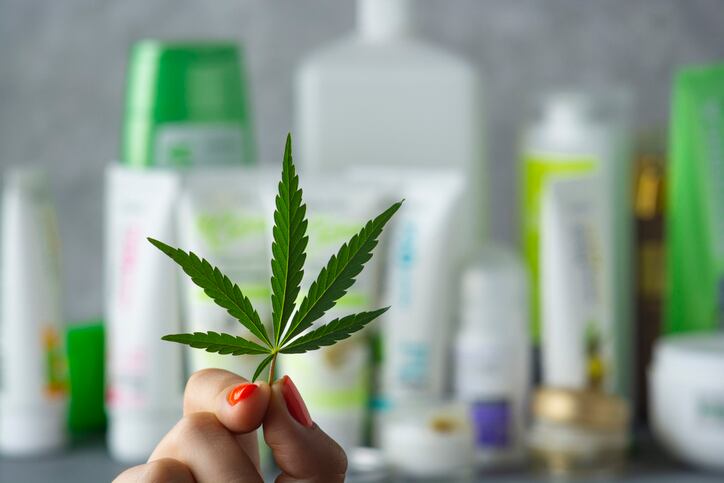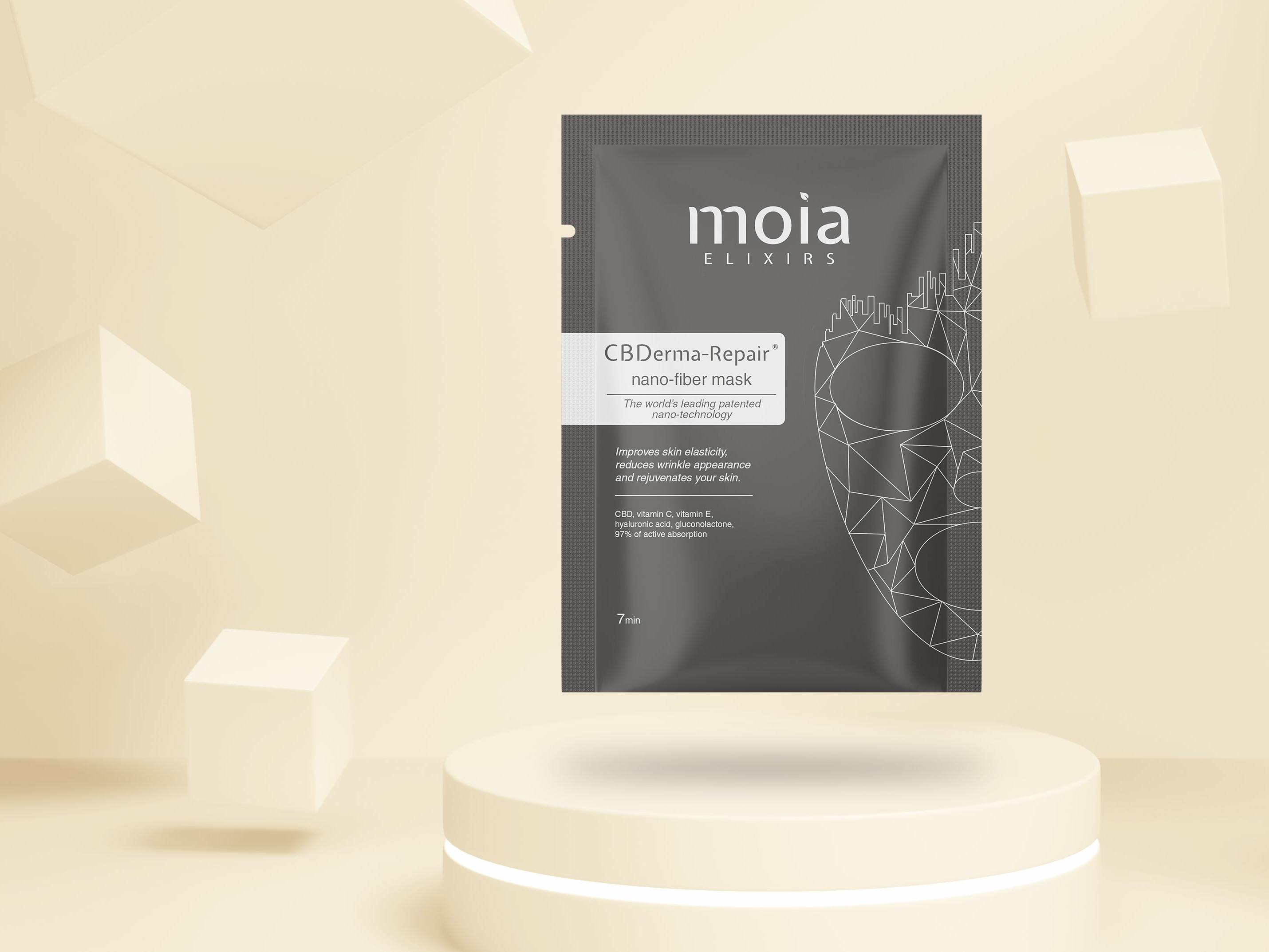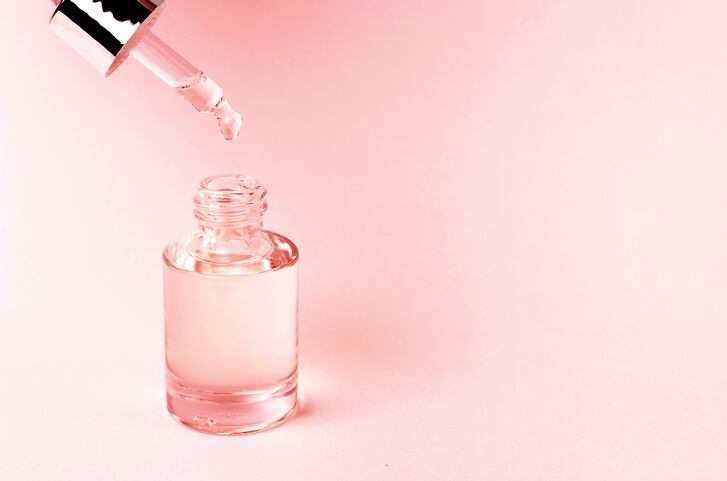Today, the European Commission’s (EC) Directorate-General for Internal Market, Industry, Entrepreneurship and SMEs (DG Grow) made two additions to the EU CosIng database: listing cannabidiol naturally derived from Cannabis Sativa L. (hemp) and cannabidiol naturally derived from leaves of Cannabis Sativa L. (hemp) as ingredients for use in cosmetic and personal care products.
The first listing cannabidiol – derived from extract or tincture or resin of cannabis cited ingredient functions as: anti-sebum, antioxidant, skin conditioning and skin protecting. The second listing cannabis sativa leaf extract cited skin conditioning and skin conditioning emollient as its functions.
The European Industrial Hemp Association (EIHA) – the trade association that had led the charge on the push for these updates – was calling for all bans on hemp-derived ingredients to be lifted to make way for new INCI entries. It was therefore still liaising with the EC to follow up requests for additional CosIng entries, specifically for CBD derived from hemp roots and hemp flowers.
Victoria Troyano Fernández, communications and advocacy officer at EIHA, told CosmeticsDesign-Europe, it was important to note that these CosIng entries, including the two published today, related to industrial varieties of Cannabis Sativa L. (hemp) that, by definition, contained only “trace levels” of THC [Tetrahydrocannabinol].
“Of course, we always have to keep that in mind; that it complies with the current provision in place at Member States’ level concerning regulations on THC,” Fernández said.
CBD cosmetics regulation in the EU
The latest classifications in the CosIng database were set to bring about welcome clarity in a regulatory landscape touted by many industry professionals and experts as arguably complex.
Up until now, only synthetically-produced CBD had been envisaged in the CosIng database, although under the EU Cosmetics Regulation (EC No. 1223/2009) CBD extracted from certain parts of the hemp plant like the leaves and stems had also been permitted. Use of CBD extracts from hemp flowers, however, had remained unclear, with a top line EU view that such extracts were not allowed, but this was governed differently in each Member State. France, for example, prohibited CBD sourced from hemp flowers in cosmetics, whilst the Czech Republic permitted it.
Now, the CosIng database featured natural CBD from hemp and natural CBD from hemp leaves as two cosmetic ingredients. Whilst the catalogue was not legally binding, rather designed to serve an informative purpose for industry, it did serve as a guideline for Member States because its ultimate purpose was to harmonise the marketing of cosmetic products across Europe.
So, why the updates? And what might this mean for industry?
European Court of Justice KanaVape ruling and EC Novel Foods stance pivotal
Back in November 2020, the European Court of Justice – Europe’s highest court – ruled that CBD derived from the hemp plant in its entirety should not be prohibited by any Member State because it was not regarded as a ‘narcotic drug’.
The ruling was part of a prosecution against French e-cigarette company KanaVape that was selling products containing CBD oil made from whole hemp plants in France – a market that only allowed CBD extracts derived from hemp fibre and seeds. KanaVape’s CBD oil, however, had been extracted legally in the Czech Republic where whole hemp could, by contrast, be used to source CBD.
The ruling was welcomed as a landmark decision by cannabis and cannabinoid industry associations across the EU and prompted the European Commission to resume previously halted Novel Food applications for edible hemp-derived CBD products just over a month ago.
Charlotte Bowyer, senior consultant at cannabis consultancy firm Hanway Associates, said a knock-on effect in the beauty sector had been inevitable.
In an interview ahead of today’s CosIng update, Bowyer had said: “I think it’s highly likely that we’ll see an update from the European Commission on the type of CBD that can be used in cosmetics. The current restriction in CosIng comes from an interpretation that CBD sourced from hemp flowers are a ‘narcotic’, but the KanaVape ruling by the European Court of Justice in November confirms that CBD should not be interpreted in this way.”
CBD interpretation shift – ‘it’s only consistent for this to apply across cosmetics’
The European Commission had already revised its opinion to allow for the use of whole-hemp CBD in food products, she said, so it was “only consistent for this to apply across cosmetics and other consumer product categories too”.
Lorenza Romanese, managing director of EIHA, said the updates to the CosIng database represented “tangible results” following “intensive, yet very rewarding” work conducted by the EIHA team and association members, though there remained more to be done.
Bowyer said the news of these latest CosIng additions, and upcoming entries, would bring “welcome clarity” to cosmetics companies across the EU.
“Rather than having to engage in complex conversations about CBD sourcing with regulators, retailers, payment processors and investors, companies will be able to get on with manufacturing and marketing their products with less of a regulatory headache.”
It would also likely push bigger beauty players to jump into the CBD space, she said, developing new standalone CBD brands or extending existing lines, which would in turn fuel consumer interest and product uptake further.
“With clearer rules around CBD, I’d expect to see increased investment in product innovation and formulation, along with further research and claims validation. CBD cosmetics have an advantage over things like food and drink in terms of the product claims that can be made and it would be great to see some hard evidence of efficacy for specific consumer products, rather than the more general claims we tend to see made around CBD.”




